AARP Hearing Center


Chapter 3
I HAD OUR DRIVER drop me at the station early the next morning. I’d had a wire from Gil saying that he would take the morning train from London and meet me when I changed trains at the next stop so we could ride down to the coast together.
I hadn’t expected Milo to see me off , but I was a bit disappointed that I saw nothing of him before I left. Then again, I hadn’t anticipated a fond farewell. My comment about the state in which our ravaged marriage had left my pride had been rude, if true.
Of course, he had taken it in stride. He had laughed and said in that terribly cool and indifferent way of his, “Very well, darling. Do as you wish.” And then he had risen and left the room, and that had been that.
I stopped on my way to the station to bid farewell to my cousin Laurel and to explain to her the reason behind my sudden departure. Laurel and I had grown up together and were the closest of friends. She was the single person in whom I felt I could freely confide.
“A trip to the seaside with Gil Trent?” she asked, brows raised as we sat in her parlor. “I didn’t think you had it in you, Amory.”
“I may just surprise us all,” I answered. “Perhaps I have a reckless streak none of us has foreseen.”
We were joking, of course, but her final assessment of the situation was accurate. “Helping an old friend or not, this certainly can’t improve things between you and Milo.”
“I sometimes wonder if anything will,” I said.
The thought troubled me as I reached the station, but I did not allow myself time for further reflection as the train moved over the landscape. First and foremost, I was to help my friend. Gil was depending on me. My marriage woes had lasted this long; they could wait a bit longer.
I switched to the southbound train at the Tonbridge station, and a few moments later Gil found me in my compartment and dropped onto the seat beside me as the train set back into motion.
“Hello,” he said. He smiled then, brightly. “I’m glad you’ve come, Amory.”
“I told you I would come, Gil.”
He removed his hat and tossed it on the empty seat facing us, brushing his fingers through his hair. “Yes, I knew you had every intention of coming.” He spoke ruefully. “But one must never underestimate the persuasive powers of Milo Ames.”
“Let’s not talk about Milo, shall we?”
“I have no desire to talk about your husband,” he said. “But I don’t want you to be hurt. Was he angry with you?”
“No,” I answered with a sigh. “Milo doesn’t get angry. I don’t think it much matters to him that I’ve gone.”
Gil was silent for a moment. “Have you left him?” he asked at last.
“I hadn’t realized how inclined to melodrama men are,” I said. “No, I haven’t really left him. Not completely, I suppose. I told him I was taking a trip.”
“Did you tell him you were going with me?”
I picked up the magazine I had been reading and flipped it open to a random page, ready to be done with this conversation. “Milo’s very clever, really. He just pretends to be glib because others find it charming. Naturally, he made the connection between your visit and my going away.”
“And he didn’t try to stop you from coming?”
“No. He didn’t.”
Gil shook his head and smiled wryly. “Then he really isn’t as clever as you believe him to be.”
***
The train pulled into the station that afternoon, and the weather was lovely. The sun shone brightly, and the warm air smelled of sea and salt. Standing on the platform, I breathed deeply and felt, for just a moment, that sense of well-being I had felt as a small child at the seaside, perfect happiness and contentment.
“Here’s the car.” Gil led me to the sleek blue automobile that the hotel had sent to collect us. We pulled away from the station and followed a road that led gradually upward, passing through the thriving village as we went.
“There it is,” Gil said a moment later, pointing to the top of the hill.
The Brightwell Hotel sat on a cliff overlooking the sea. It was a lovely white building, sprawling, sturdy, and somehow elegant at the same time. There was something stately yet welcoming about the place. It looked as though it would be equally suited to princes or pirates, the sort of place one could be proud of visiting without being perceived to be too fond of squandering one’s money. These days, a good many people frowned upon unnecessary lavishness.
Gil and I emerged from the car and moved together up the walk, stepping through the door into the hotel. The interior was as pleasing to the eye as the exterior had been. The lobby was a large spacious room with a desk directly facing the doors. The floors were of gleaming white marble, and light filtered in through the numerous windows, bouncing off the yellow walls, infusing the room with a warm glow. There was a good deal of furniture in white and various shades of blue scattered artfully about with very deliberate carelessness. A potted plant or two, strategically placed, added to the overall effect.
As Gil collected our room keys, I felt I could spend quite a happy week in this place. “Why, if it isn’t Amory Ames!” A high, almost shrill voice called out across the lobby. I turned and saw a woman in an outrageous hat and brightly colored clothes soaring toward me like a parrot in flight.
“Oh, dear,” said Gil and I in unison.
Yvonne Roland, terror of London society, descended upon us. “Amory, Amory darling!” She clutched my arms and brushed kisses an inch away from each of my cheeks, the scent of talcum powder and roses enveloping me. “It’s been ages ... Since before my last husband died, I think ... Or maybe just before ... Poor dear Harold ... And how are you, dearest?”
She didn’t wait for me to answer before turning on Gil. “And Gilmore Trent! How delightful to see you. But you’ve come together.” She turned to me, grabbing my hand. “How delightful.”
A thought suddenly seemed to strike her. Her eyes narrowed and darted from me to Gil and back again. “But, my dear, I thought you had married ... What was that fellow’s name? The wickedly good-looking one?”
“I’ve just come to visit the seaside with some friends,” I said vaguely.
A rather sly smile crossed her face. “Ah! I see. Well, you can count on me as the soul of discretion ... If you only knew the secrets I’ve kept ... never revealed I knew all about Ida Kent, even after she’d run off with that butcher.” She wrinkled her nose in distaste. “Sordid business ... but you and Gil? I’m delighted. Now, if you’ll excuse me, I’m taking tea on the terrace. I’ll be seeing you both later.” She winked ostentatiously and was gone.
“Good heavens,” Gil breathed.
I nodded. Mrs. Roland was a wealthy widow who flittered about society like a flamboyant and excessively chirpy bird. She had been widowed three times, accumulating successively more wealth as each husband faded beneath her bright and tiresome exuberance. I was inclined to believe her husbands had gone to the grave for the sheer peace of it. Still, she was harmless enough.
“At least things won’t be dull at the seaside,” I said with a smile. “Mrs. Roland may not exactly be with us, but she will certainly be among us.”
“Well, then,” he said, lightly touching my elbow, “I suppose we may as well go up and prepare ourselves to join Mrs. Roland and the others for tea on the terrace.”
I followed him to the lift, which sat to the left of the front desk. We rode up in silence to the first floor, both of us lost in our own thoughts.
As we stepped out of the lift, Gil turned to me and handed me the key to my room. As his hand brushed mine, I suddenly felt that there was something rather clandestine about all of this. Separate rooms or no, we had just checked into a hotel together, and I felt a bit unsettled about the fact.
We looked at one another. I wondered if the thought had occurred to him as well.
“My room’s just three doors down,” he said. “I’ll meet you here in a quarter of an hour?”
“All right.”
He left me, and I entered my room. It was good-sized and decorated in an understatedly elegant manner: gleaming wooden floors with thick rugs, silk flocked wallpaper, and smooth, heavy bed linens, all in pale, tasteful colors. The sitting area had a fashionably modern sofa and two silk-upholstered chairs. A writing desk sat against the wall. As in the lobby, the furnishings seemed to say, “Don’t mind us. We will just sit here and be expensive.”
I took off my hat and gloves, dropping them on one of the chairs, and went to the window. My room faced the sea, and I pushed aside the filmy, ivory curtain, admiring for a moment the smooth expanse of blue. It was a decidedly romantic view, and, coupled with the vague feeling of wrongdoing I had experienced in the hallway, I began to wonder if I had made the right choice in coming. I quickly pushed the doubts away; there was nothing wrong in it, after all.
I changed from my tailored dove-gray traveling suit into a flowing white and red flower-printed chiffon dress with a soft belt that tied in a loose bow at my side. I then went to the bathroom and splashed cool water on my face, reapplied what little makeup I had worn, and combed my hair, smoothing the dark waves that were a little mussed from the journey. Putting on a white, lightweight cloth hat with a jaunty brim and red grosgrain ribbon, I was ready to take tea with Gil’s sister and whoever else was in the party.
The sudden realization that I had very little idea who exactly was sharing our holiday made me feel a bit silly. Undoubtedly, I had rushed into this seaside trip with very little forethought, but I supposed it was too late to do much about it now.
Gil met me in the hallway at the designated time. He had freshened up as well, and we made a handsome pair walking down the long, golden hallway together. For a briefest of instants, I wondered what life might have been like had I married Gil. Would we have been happy? It was impossible to know.
“I would rather have had a good nap,” he said as we entered the lift. “But I suppose tea is as good a time as any to make our entrance.”
“Indeed,” I answered. “It will give the scandal time to build until dinner.”
He smiled, but I could sense his hesitation. “You don’t mind a bit of scandal, do you, Amory?”
The last of my doubts dissipated, and I returned his smile. “What’s a little scandal? One only lives once, after all.”
We exited the lift and walked across the gleaming lobby, through a comfortable sitting area, to French doors on the west side of the building. Stepping out into the bright light, I admired the spacious terrace. Gil explained that it extended all along this side of the building, wrapped around across the south side, overlooking the sea, and then continued around the east side. There was another terrace, he told me, a short way down the cliff, accessible by a winding fl ight of white wooden stairs. “It’s rather a scenic spot, but the wind is high today,” he said. “I expect most of the guests will have tea on the main terrace.”
“Gil!” We looked to see Emmeline Trent waving to us from a bit farther down. With Gil’s hand at my elbow, we made our way to where she had risen from her seat to greet us.
Emmeline hugged her brother, then turned to me. Like Gil, Emmeline seemed to have changed very little since I had seen her last. A thin, pretty girl, she shared her brother’s coloring, the dark blond hair and brown eyes. She smiled brightly as she extended her hand to squeeze mine affectionately. “Dearest Amory. I’m so happy to see you again. I didn’t know you would be here. How delightful.”
“It was something of a last-minute decision. It’s lovely to see you, Emmeline.”
She turned then, her eyes alight with happiness and pride, stretching out her hand to the gentleman beside her. “You’ve met, I think? You remember my fiancé, Rupert Howe. Rupert, Amory Ames.”
The young man standing by her side was as I remembered him: tall, handsome, and impeccably groomed, with dark brown hair and eyes to match. Bright teeth formed what seemed a practiced, too-polite smile. There was no warmth in his eyes, not for me, and certainly not for Gil.
“Charmed, Mrs. Ames,” he said.
I was not at all charmed. I could tell at once that he was too polished, too aware of his own appeal. Perhaps he did not remind me of Milo so very much, after all.
As if our thoughts had taken different routes to the same location, Emmeline asked, “Is your husband here?” I paused, allowing a slightly awkward silence to settle in our midst.
“No,” I said at last. “No, Milo and I are ... well, I’ve come at the invitation of your brother.”
Emmeline colored. “Oh, I’m sorry.” She gave her brother a rap on the arm. “You didn’t tell me, Gil! Do forgive me, Amory. I didn’t realize ...”


























































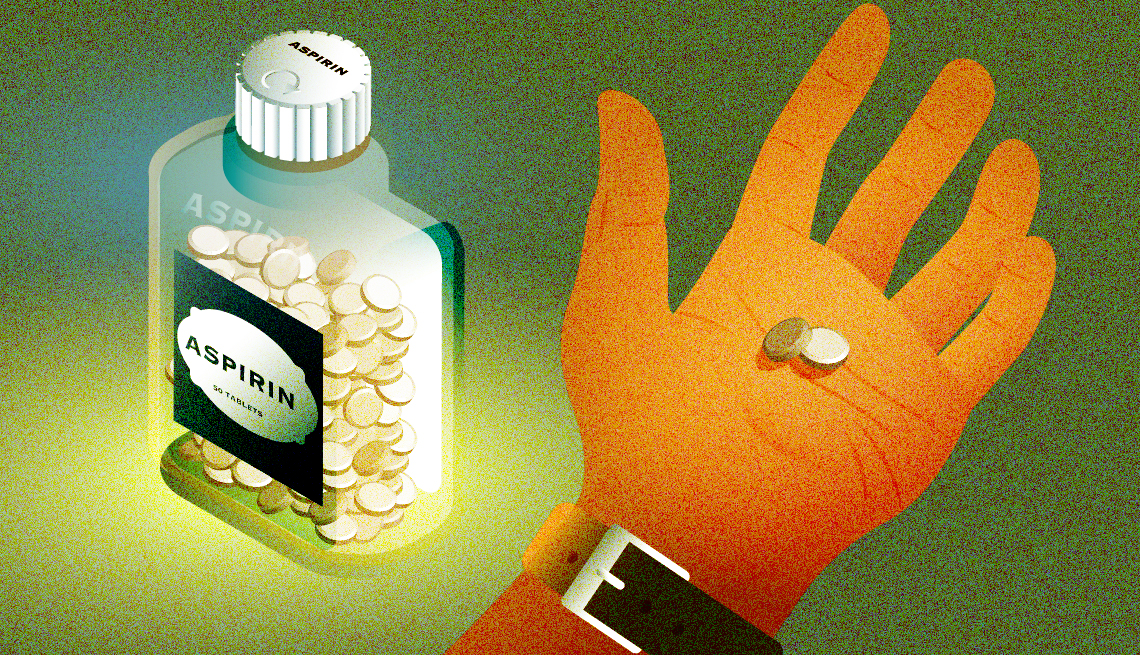



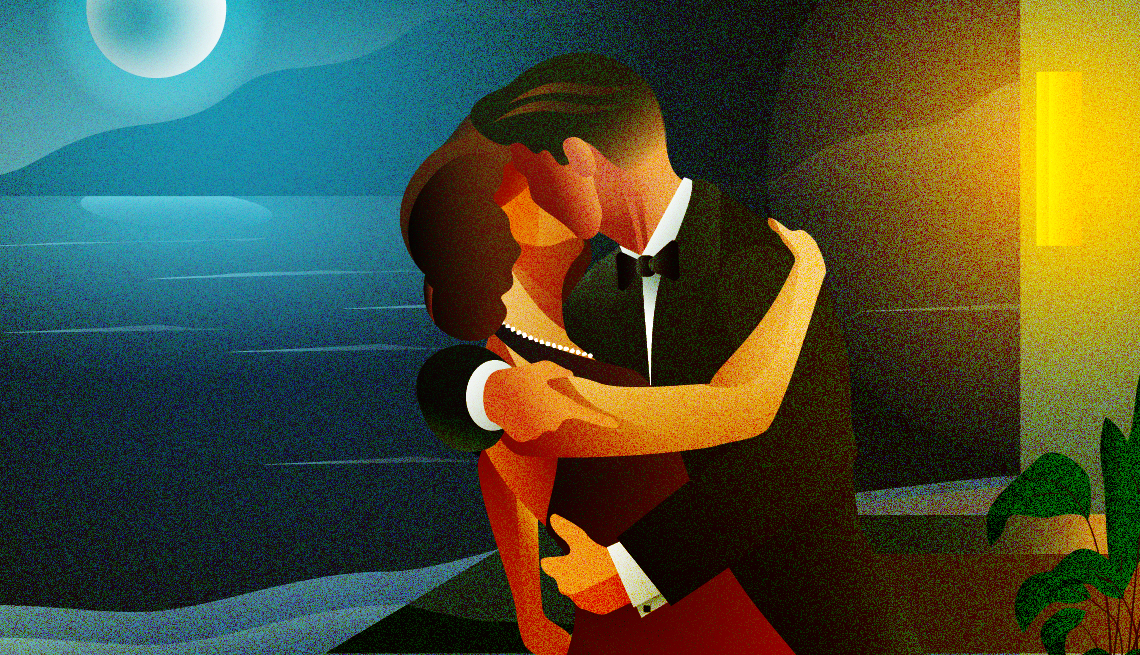
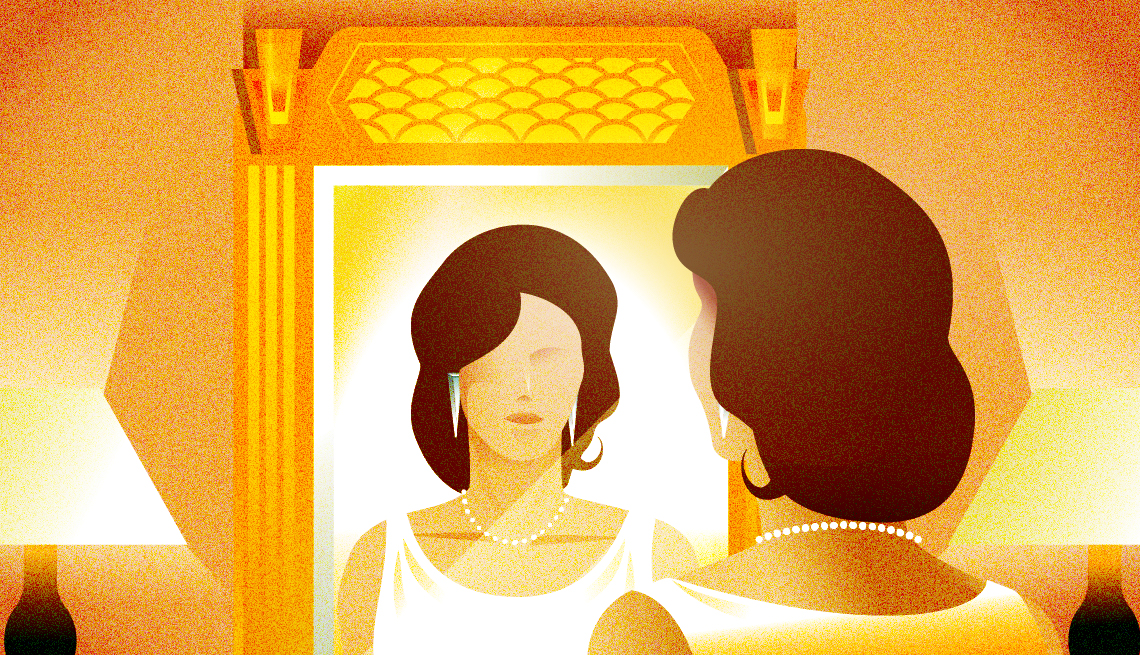
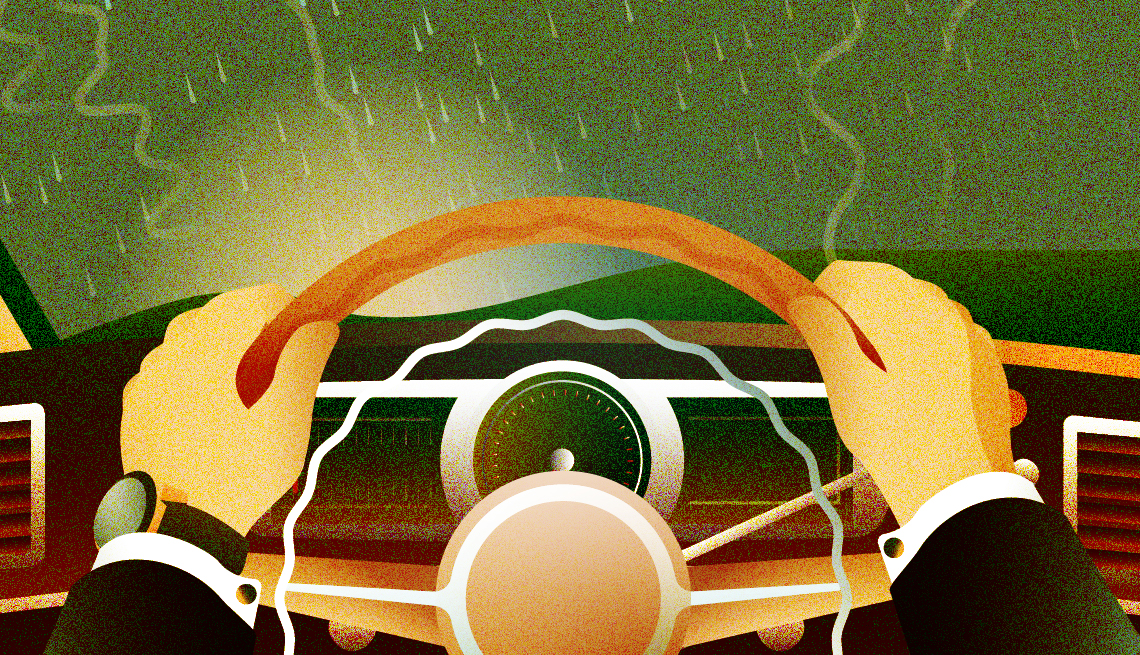
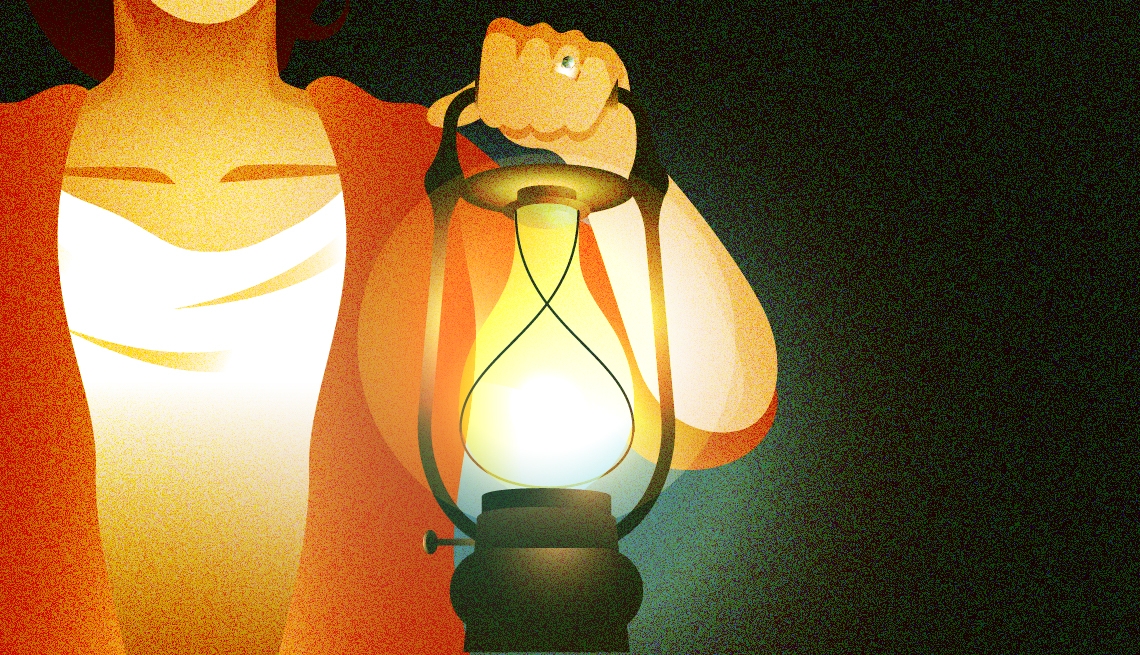

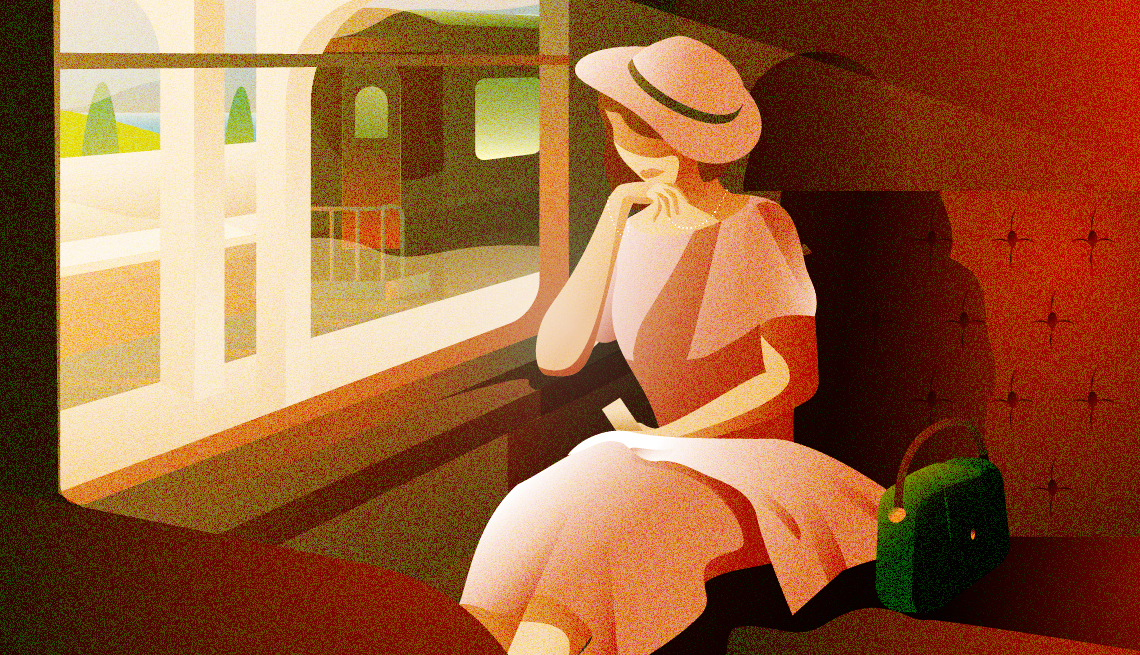
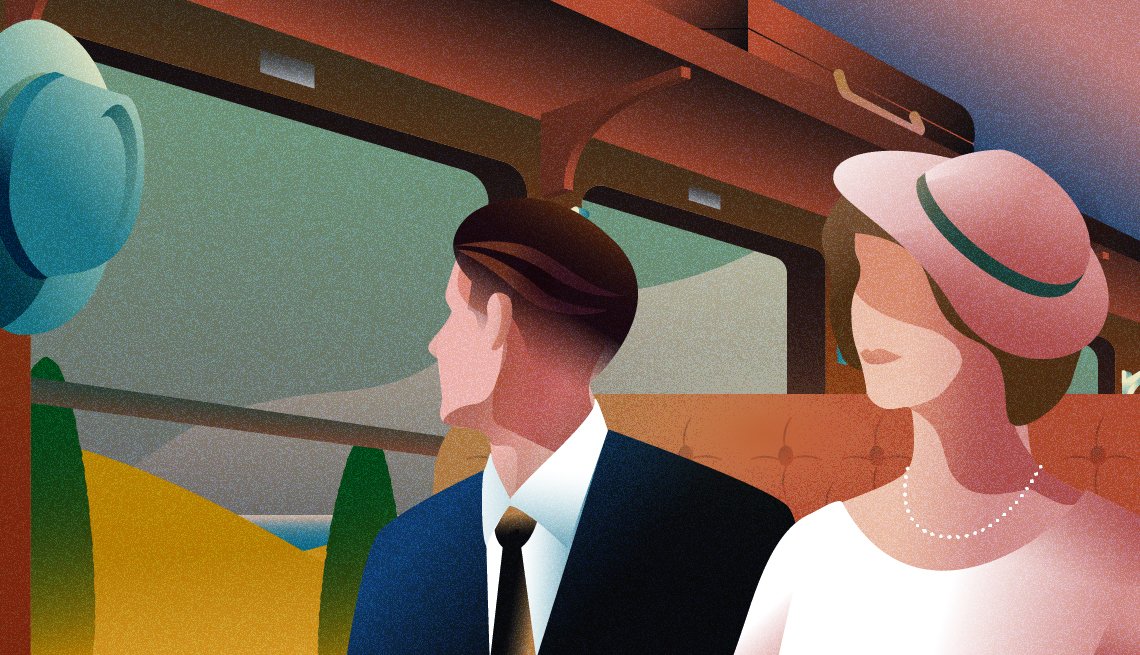



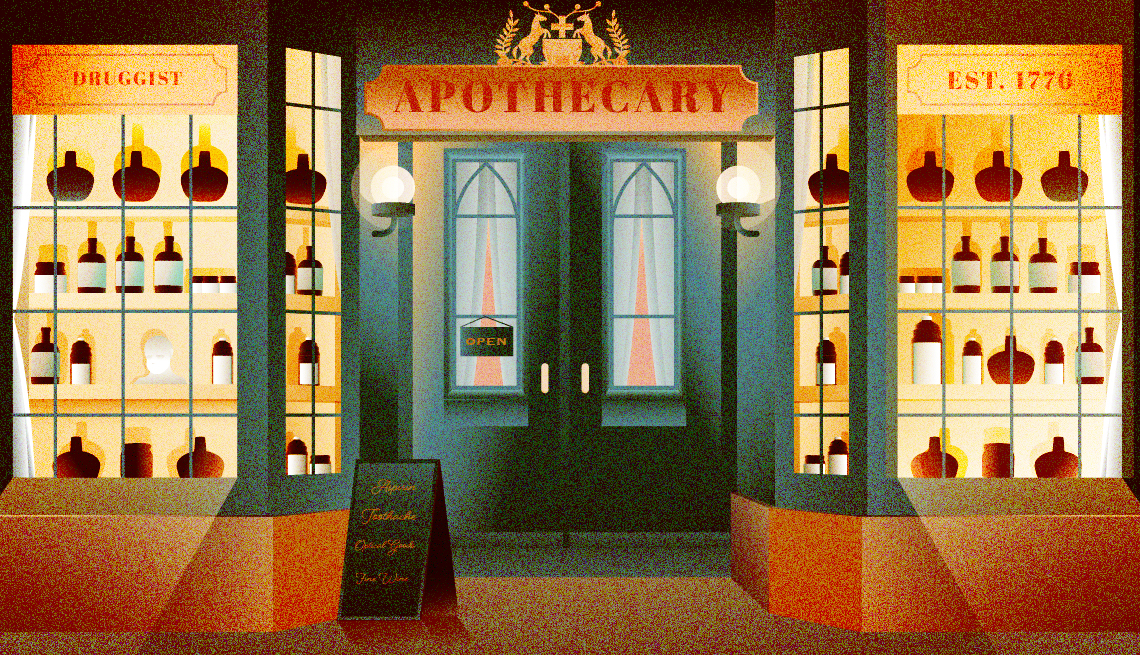



More From AARP
Free Books Online for Your Reading Pleasure
Gripping mysteries and other novels by popular authors available in their entirety for AARP members